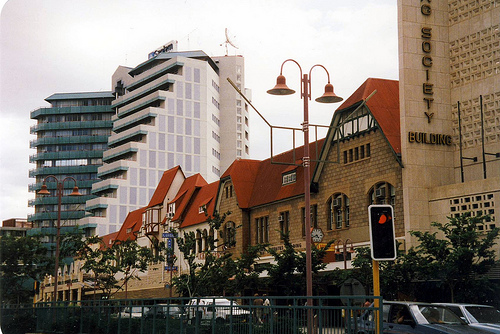Planning your travels isn’t just about deciding on your perfect destination, searching for the ideal place to stay and booking plane tickets. Travelling demands some serious thought and preparation, especially if you want to learn as much as you can about a place, and its people.The best ways to learn about the interesting cultures of Africa is to speak to the locals. Even if you are only able to say a few words, the mere fact that you have tried to speak their language, or have greeted them in their mother tongue, creates a special bond between two people from very different backgrounds.One thing you should know about Namibia is that it’s a country of diversity. Not just in its landscapes, but in its people, too. For this reason, the country welcomes thousands of eager visitors from all around the world, who are yearning to learn more, see more and experience more. It’s a country that’s immersed in interesting history, charismatic sights and fascinating cultures which allows visitors to see a very different side, to Africa. It’s a country so different from even its closest neighbours and this is not just because it's made up of predominantly desert, but largely because of the influences of its past.Namibia was shaped by its early settlers, who stepped foot on the land as far back as the 1800’s. Still to this day, visitors are able to recognise the cultural influences that were brought by Namibia’s early inhabitants, and it creates intrigue amongst visitors.The earliest inhabitants of Namibia were the San, Nama and Damara cultures, but were later joined by other African cultures. During the expansion of Africa - when cultural groups moved from their ‘homelands’ to other parts of the continent - Namibia saw the arrival of the Bantu, as well as the Oorlam people, who immigrated from Central Africa and Southern Africa, respectively. This was during the 1800’s and is known as the pre-colonial period.The colonial period, however, dates back to the late 1800’s when a large group of German traders and settlers, who often crossed Namibia on their way to South Africa, decided to settle in this region. Namibia officially became a German colony in 1884 and their influences can be noticed in some of the names of the towns and cities; such as ‘Windhoek’ and ‘Swakopmund’, as well as the name of the famous dunes: Sossusvlei. The majority of Namibians practice Christianity and form part of the Lutheran church, which was introduced by the German settlers, in Namibia’s development years. The German influence can also be seen on the streets of Namibia, as the architecture exudes European flair.

Surprisingly, around 2% of the population still speak German and most of them prefer to be classified as Namibian Germans, rather than Afrikaners.Later, when the German forces were defeated, South Africa occupied the colony in 1915. This shift brought the influence of English as well as Afrikaans - a language fairly similar to German, as it’s derived from the dutch- which is now the predominant languages of Namibia.The fusion of different cultures and 'tongues', has shaped the country of Namibia into an extremely unique place. While Namibia is true to Africa, in terms of culture and experiences, it certainly contains interesting European touches.If you’re eager to visit this majestic hidden gem, that’s surrounded by desert, and the beautiful blue Atlantic Ocean, then we believe you should learn a thing or two about the languages of the locals. Not only will we detail simple Afrikaans phrases, but German too, because you never know - you may just bump into a Namibian of German descent! AfrikaansGermanHello Hallo HalloHow Are You? Hoe Gaan Dit Met Jou? Wie Geht Es lhnen?Please Asseblief BitteThank You Dankie DankeNo Thank You Nee Dankie Nein DankeYes Ja JaNo Nee NeinWhat is Your Name? Wat is jou naam? Wie Heissen Sie?My Name Is… My naam is.. Ich Heisse...I’m From… Ek is van.. Ich Komme Aus..Pleased to Meet You Bly te Kenne Schön Sie Zu TreffenGood Morning Goeie More Guten MorgenGood Evening Goeienaand Guten AbendGoodbye Totsiens Auf WiedersehenHave a Nice Day Geniet die dag Einen Schönen tag nochExcuse me? Verskoon My Entschuldigen SieHow Much is This? Hoeveel Kos Dit? Wieviel Kostet Das

